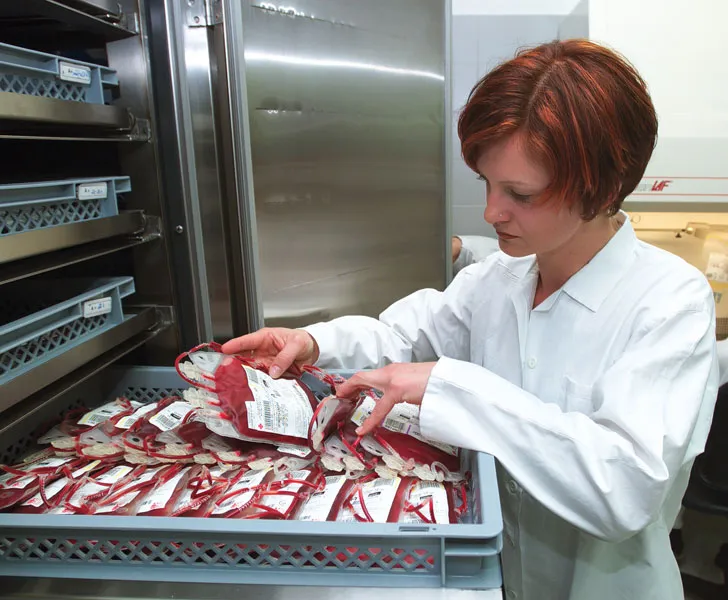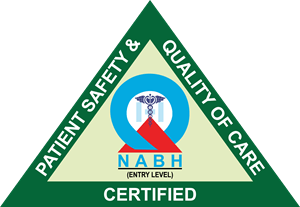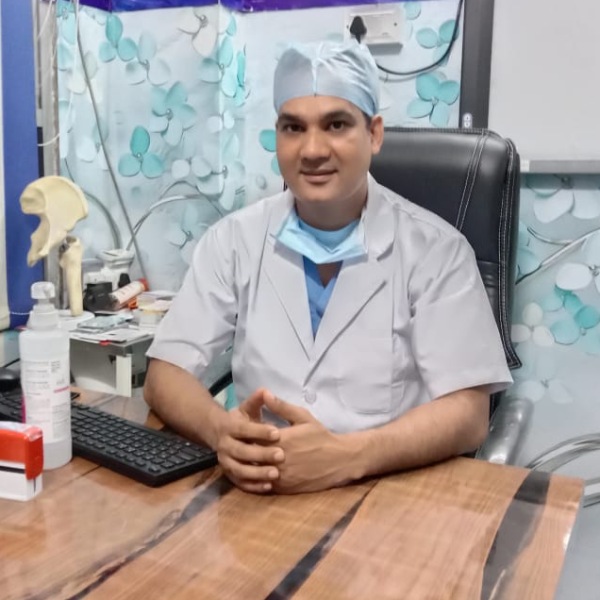Blood Banking
What Is Blood Banking ?
Blood banking, also known as transfusion medicine, is a specialized branch of medicine that involves the collection, processing, testing, and storage of blood and blood components for use in medical treatments. The primary goal of blood banking is to ensure a safe and adequate supply of blood products for transfusion to patients in need.
Donor Recruitment and Collection: Blood banks organize and conduct blood drives, where voluntary donors provide whole blood or specific blood components like red blood cells, plasma, and platelets. Blood Donation Process: Donors are carefully screened for eligibility based on medical history, current health status, and lifestyle factors. The blood collection process is performed using sterile equipment and adheres to strict safety and hygiene standards. Component Separation: After collection, whole blood is often processed to separate it into its individual components: red blood cells, plasma, platelets, and other blood products. This allows for targeted transfusions based on a patient's specific needs. Blood Testing: All donated blood undergoes rigorous testing to ensure its safety and compatibility. Tests screen for infectious diseases (such as HIV, hepatitis, and syphilis) and determine blood type and other important factors. Blood Typing and Cross-Matching: Blood banks determine the ABO blood group and Rh factor of each unit of donated blood. Additionally, they perform compatibility testing to ensure that the recipient's immune system will not react negatively to the transfusion. Storage and Inventory Management: Blood components are stored under controlled conditions to maintain their integrity and safety. Blood banks carefully monitor inventory levels to ensure an adequate supply of blood products at all times. Issue and Transfusion: When a patient requires a transfusion, blood bank personnel select the appropriate blood component based on the patient's blood type and specific medical needs. Transfusions are administered by healthcare professionals in clinical settings. Emergency Preparedness: Blood banks play a critical role in disaster response by ensuring that an adequate supply of blood is available for immediate use in emergencies and natural disasters. Quality Assurance and Regulatory Compliance: Blood banks follow strict quality control measures and adhere to regulatory guidelines set by organizations like the FDA (Food and Drug Administration) to ensure the safety and efficacy of blood products. Research and Development: Blood banks may engage in research activities to advance transfusion medicine, improve blood storage techniques, and develop new technologies for blood product processing. Blood banking is a vital component of modern healthcare, supporting a wide range of medical treatments, including surgeries, trauma care, cancer treatments, and management of various medical conditions. It relies on the generosity of voluntary blood donors and the dedicated efforts of healthcare professionals to maintain a safe and sufficient blood supply for patients in need.

What Is The Main Cause Of Blood Banking ?
The main cause of blood banking is to ensure a safe and sufficient supply of blood and blood products for medical treatments, particularly transfusions. This critical healthcare service addresses several key needs and challenges:
- Emergency Situations and Trauma Care: Accidents, injuries, and surgical procedures may result in significant blood loss. Having a readily available supply of blood allows for timely and life-saving transfusions in emergency situations.
- Scheduled Surgeries and Medical Procedures: Many surgical procedures, including elective surgeries like joint replacements and organ transplants, require blood transfusions as part of the treatment plan.
- Treatment of Chronic Conditions: Patients with certain medical conditions, such as anemia, cancer, and blood disorders, may require regular blood transfusions to manage their health.
- Cancer Treatments: Chemotherapy and radiation therapy can suppress the production of blood cells in the body. Transfusions of blood products, such as red blood cells and platelets, can help support patients undergoing cancer treatment.
- Treatment of Hemorrhagic Conditions: Individuals with bleeding disorders or conditions that affect blood clotting may require transfusions of clotting factors or platelets.
Organ and Bone Marrow Transplants: Patients undergoing organ or bone marrow transplants often require blood and blood product transfusions as part of their pre-transplant and post-transplant care. Neonatal Care: Premature infants and newborns with specific medical conditions may need blood transfusions to address anemia or other health issues. Patients with Hemolytic Diseases: Conditions like sickle cell anemia and thalassemia can lead to chronic anemia, requiring regular transfusions to maintain adequate hemoglobin levels. Management of Autoimmune Disorders: Some autoimmune disorders, such as immune thrombocytopenia (ITP), may necessitate platelet transfusions to help manage low platelet counts. Support for Organ and Tissue Donors: Blood banks play a crucial role in collecting blood from organ and tissue donors to ensure the availability of compatible blood products for transplant recipients. Disaster Response and Mass Casualty Events: Blood banks are essential during emergencies, natural disasters, or large-scale accidents where a sudden surge in demand for blood products may occur. Research and Clinical Trials: Blood banks may supply blood products for research purposes, including the development of new treatments, drug testing, and scientific studies. Overall, blood banking is a cornerstone of modern healthcare, providing a lifeline for patients in need of transfusions due to a wide range of medical conditions and treatments. It relies on voluntary blood donations from individuals in the community and the dedicated efforts of healthcare professionals to maintain a safe and sufficient blood supply.
Timing :-
- Mon to Fri : 8.00am to 5.00pm
- Mon to Fri : 8.00am to 5.00pm
About
Treatment for piles (hemorrhoids) includes lifestyle changes like a high-fiber diet and increased water intake. Over-the-counter creams, ointments, and suppositories can alleviate symptoms. In more severe cases, medical procedures like rubber band ligation, sclerotherapy, or surgery might be necessary. Consultation with a healthcare professional is recommended for proper guidance.
Call NowClinical Services
Facilities
24 Hours Services




